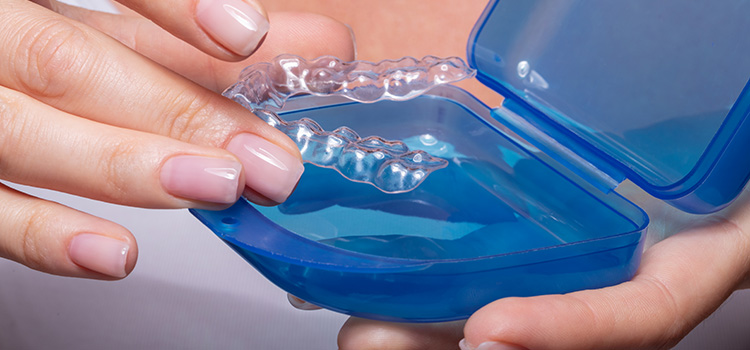Suffering from a Temporomandibular Joint (TMJ) flare-up can be excruciatingly painful and disrupt daily life significantly. This condition, characterized by inflammation and dysfunction of the jaw joint, can manifest in a range of symptoms, including pain, tenderness, swelling, clicking or popping sounds, and difficulty opening or closing the mouth. While TMJ flare-ups can be debilitating, understanding the causes, triggers, and effective treatment strategies can empower you to manage this condition effectively.

Image: www.proteethguard.com
Understanding TMJ Flare-Ups
The temporomandibular joint, located on either side of the face where the lower jawbone (mandible) connects to the skull, is a complex and intricate structure. This joint enables a wide range of movements, including opening, closing, and side-to-side motion of the jaw. When the TMJ is functioning optimally, these movements are smooth and pain-free.
However, various factors can disrupt the delicate balance of the TMJ, leading to inflammation and pain. Stress, teeth grinding (bruxism), jaw misalignment, and trauma to the face or jaw are common triggers for TMJ flare-ups. Understanding the underlying cause of your symptoms is crucial for developing an effective treatment plan.
Remedies for TMJ Flare-Ups
If you’re experiencing a TMJ flare-up, several remedies can provide temporary relief from pain and discomfort. Implementing these measures alongside professional treatment can help you manage your symptoms:
-
Over-the-Counter Pain Relievers
Nonsteroidal anti-inflammatory drugs (NSAIDs) such as ibuprofen or naproxen can help reduce inflammation and pain. However, long-term use of NSAIDs can have potential side effects; consult your healthcare provider for guidance on safe and effective usage.
-

Image: thienvienchannguyen.netCold Compress
Applying a cold compress to the affected area can help reduce swelling and alleviate pain. Wrap a cold gel pack or ice cube in a thin towel and apply it to the jaw for 15-minute intervals several times a day.
-
Soft Diet
Eating soft foods during a TMJ flare-up can minimize strain on the jaw joint. Avoid chewing tough or chewy foods that require excessive jaw movement. Choose foods that are soft and easy to swallow, such as soup, yogurt, or mashed potatoes.
-
Stress Reduction Techniques
Stress is a significant trigger for TMJ flare-ups. Engaging in stress-reducing activities such as yoga, meditation, or deep breathing exercises can help calm the nervous system and reduce muscle tension in the jaw.
-
Modified Jaw Exercises
Controlled jaw exercises can help strengthen the muscles around the TMJ and improve jaw range of motion. Perform these exercises gently and under the guidance of a healthcare professional to avoid further irritation.
Professional Treatment Options
If home remedies fail to provide adequate relief from TMJ pain, seeking professional treatment is essential. Several treatment options are available to address TMJ dysfunction, including:
-
Custom-Fit Mouthguard
Occlusal splints, also known as mouthguards, are custom-made appliances that are designed to fit over the teeth and create a more balanced bite, reducing pressure on the TMJ and relieving pain.
-
Jaw Physical Therapy
Physical therapy specifically tailored for TMJ disorders can help improve jaw range of motion, reduce pain, and strengthen the jaw muscles. Therapeutic exercises may include gentle stretching and massage techniques.
-
Medication
In certain cases, your healthcare provider may prescribe medications such as muscle relaxants or antidepressants to alleviate pain and reduce inflammation associated with TMJ dysfunction.
-
Surgery
Surgery is rarely necessary for TMJ disorders. However, in severe cases where conservative treatment measures have failed to provide relief, surgical intervention may be considered to correct underlying structural issues within the jaw joint.
How To Fix Tmj Flare Up
Conclusion
TMJ flare-ups can be painful and debilitating, but with the right treatment approach, you can manage this condition effectively. A combination of home remedies and professional care can help reduce pain, improve jaw function, and prevent future flare-ups. By implementing the strategies outlined above, you can take control of your TMJ symptoms and enjoy a healthier, more comfortable life. Remember, if pain persists or worsens, don’t hesitate to seek professional guidance to address the underlying cause and develop a personalized treatment plan.







